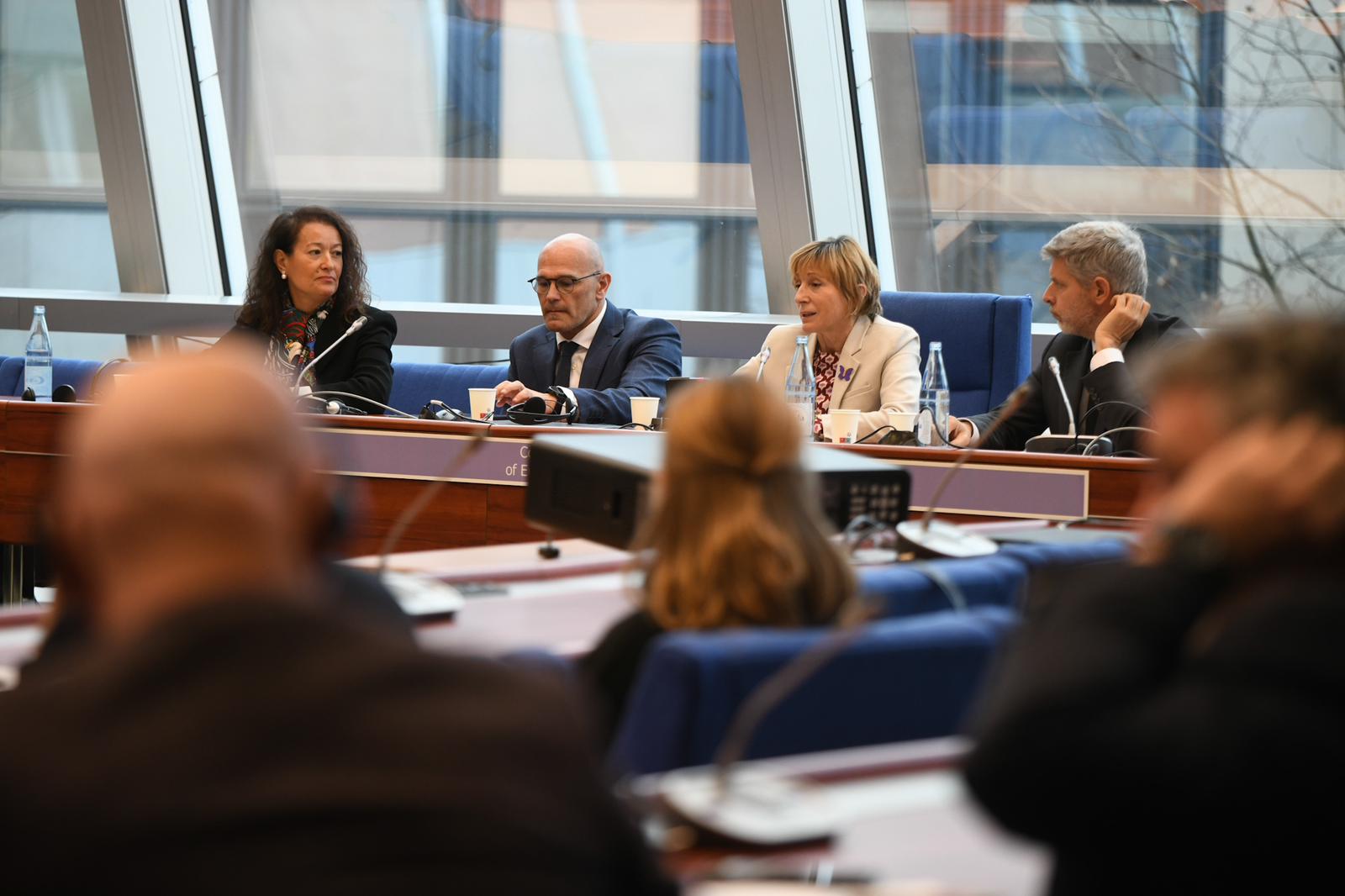The violations of the freedom of expression of leaders and supporters of Catalan independence have been denounced at the Council of Europe. The Catalan Republican Left (ERC) held an event this Monday at the headquarters of this European human rights body in Strasbourg, in which the former government minister Raül Romeva, the former speaker of the Catalan Parliament, Carme Forcadell, and criminal lawyer Andreu Van den Eynde took part. Under the title 'Political Rights in Full Democracies: the Catalan case', the three stated how they have been victims of repression by Spain and described the repercussions that this has on the health of democracy, both at state level and for the rest of Europe.
Romeva: "We are here to give a reminder that this is not over"
Raül Romeva was the first to address the event introducing himself as a "defender of fundamental rights" above all. In fact, in his speech he recalled that, like him, many of the people who seek a self-determination referendum consider themselves federalists or supporters of other solutions to the Catalan question. What unites them, he argued, is that, like the vast majority of Catalan society, they are convinced that the only way to resolve the conflict is through a referendum: "The vast majority of those who defend the cause and take risks do so out of democratic convictions, not due to nationalist interests," the former minister affirmed. In this regard, he gave the view that it is not necessary to be pro-independence to "defend democratic rights", and for this reason he denounced that Spain has "politicized judicial power" and that the leaders convicted over the 1st October 2017 referendum spent "1221 days in prison for calling a referendum which is basically a tool to find out what people think." "We are here to give a reminder that this is not over, that this is not about us individually," he added.
Forcadell: "We still don't know how it will end"
For her part, Carme Forcadell began her speech by thanking the Council of Europe for allowing her to express herself in Catalan. In her presentation, she explained that she was sentenced to 11 and a half years in prison for "allowing a debate in Parliament", an action supposedly "protected by freedom of expression and parliamentary inviolability", because, according to the interpretation of the courts, "the Bureau of the Catalan Parliament cannot decide what is debated and what is not." In addition, Forcadell criticized the fact that, apart from her own case, as speaker and leader of the Bureau, which was heard in the Supreme Court, the trial of the other members of the Bureau was held at the Catalan High Court, because the events took place in Catalonia, and that this shows that her sentence was "exorbitant" and arbitrary. However, she acknowledged that the Supreme Court ruling "was totally unpredictable", and that even today, with the review of the pardons yet to go before the Supreme Court-- "the truth is that we do not know, yet, how it will end" , she warned.
Van den Eynde: "I have been a victim of espionage"
In turn, the criminal lawyer who represents Oriol Junqueras and other members of ERC recalled the key points of their defence in the 1st October trial: "The law punishing organization of an illegal referendum was repealed in 2005. Since it was no longer a crime, [the Spanish authorities] chose to respond with repression," said Van den Eynde, who also denounced a "partisan use of the rule of law" in the pursuit of the independence movement. Along the same lines as Romeva, the lawyer insisted that the pro-independence leaders were "convicted for promoting ideas rooted in democracy". In addition, Van den Eynde also took advantage of his address to remember that he has been a victim of cyberespionage with Pegasus software at the same time as he was defending his clients, for him further proof of "human rights violations" on the part of the Spanish state against pro-independence circles, which "still continue".

